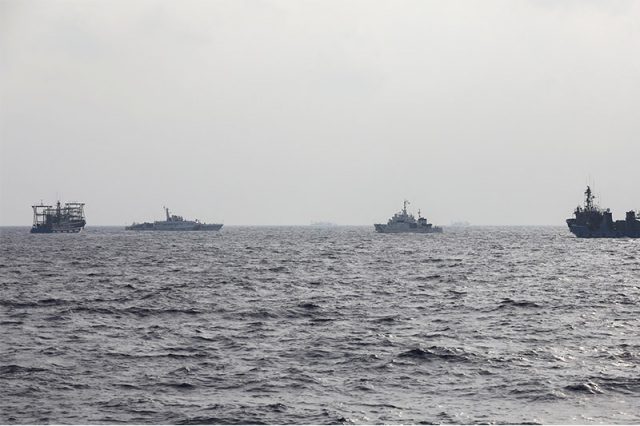
MANILA — Philippines President Ferdinand Marcos Jr has approved the third phase of the military’s modernization, which includes the purchase of the country’s first submarine, in order to defend its maritime sovereignty in the disputed South China Sea.
Navy spokesperson for the West Philippine Sea, Roy Trinidad, said on Thursday the third phase of modernization reflected a shift in strategy away from internal to external defense.
“We may not be a large navy…but we would have a navy that will take care of our territorial rights and sovereignty,” Trinidad said.
The third phase of the modernization plan, which underwent revisions to make it more attuned to the country’s needs, is estimated to cost 2 trillion pesos ($35.62 billion) and will be implemented over a period of several years, said Trinidad.
The announcement comes at a time of growing tensions with China over territorial disputes in the South China Sea. Manila refers to that part of the South China Sea within its exclusive economic zone as West Philippines Sea.
Trinidad could not immediately say how many submarines the Philippines intend to acquire, but he said, “definitely more than one.”
France, Spain, Korea and Italy have shown interest in supplying the Philippines with submarines, he said.
Southeast Asian neighbors like Indonesia and Vietnam already have submarine programs.
While the first and second phase of the military’s modernization plan were “land centric”, said Trinidad, the third phase will seek, among others, to boost military capabilities on the West Philippines Sea.
Defense Secretary Gilberto Teodoro said last month acquisitions under the third phase will focus on an array of capabilities, ranging from domain awareness, intelligence, deterrence capabilities in the maritime and aerial space.
Beijing and Manila have traded sharp accusations in recent months over a succession of run-ins in the South China Sea, where each have overlapping sovereignty claims, including charges that China in December rammed a ship carrying the Philippine armed forces chief of staff.
China claims most of the South China Sea, parts of which are also claimed by the Philippines, Brunei, Malaysia, Taiwan, Vietnam and Indonesia. An international tribunal in 2016 invalidated China’s claim in a ruling on a case brought by the Philippines, which Beijing rejects.
($1 = 56.1500 Philippine pesos)
— Reporting by Karen Lema; Editing by Michael Perry









